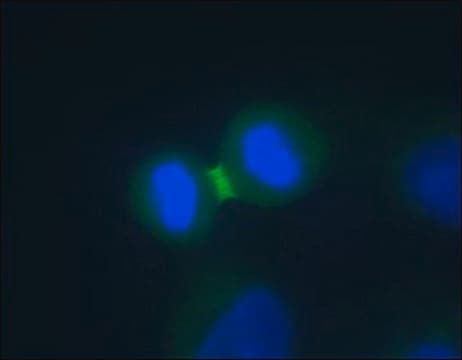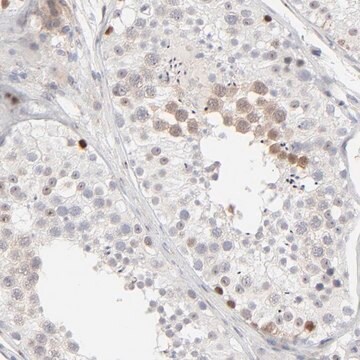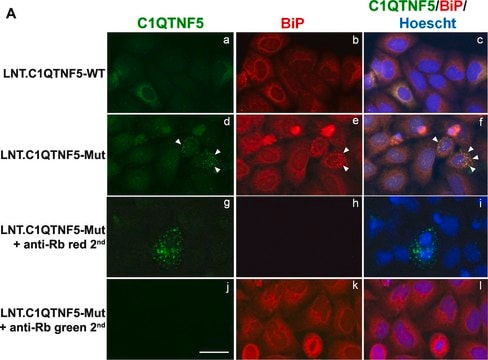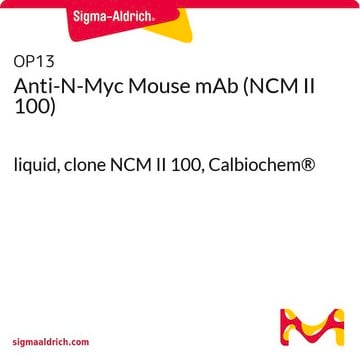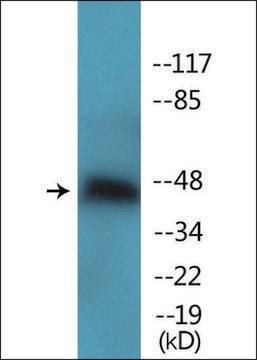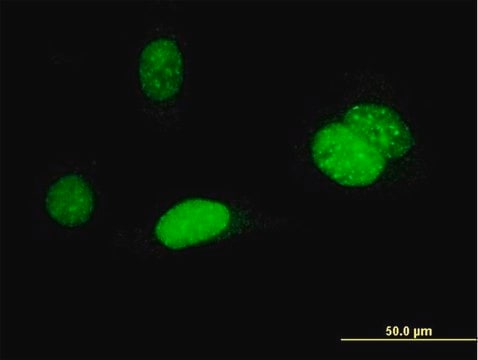A1231
Monoclonal Anti-Aurora-A Kinase
clone 35C1, purified from hybridoma cell culture
Synonyme(s) :
Monoclonal Anti-Aurora-A Kinase antibody produced in mouse, Anti-ARK-1, Anti-AURORA2, Anti-Aurora-related kinase 1, Anti-STK6, Anti-Serine/threonine protein kinase 15, AntiSTK15 (Serine/threonine protein kinase 15), BTAK
About This Item
Produits recommandés
Source biologique
mouse
Produit recombinant
expressed in mouse cell line
Conjugué
unconjugated
Forme d'anticorps
purified immunoglobulin
Type de produit anticorps
primary antibodies
Clone
35C1, monoclonal
Forme
PBS solution
Poids mol.
antigen ~46 kDa
Espèces réactives
human, mouse
Concentration
~2 mg/mL
Technique(s)
immunocytochemistry: suitable
immunoprecipitation (IP): suitable
indirect ELISA: suitable
western blot: 0.25-0.5 μg/mL using HeLa total cell extract
Isotype
IgG2b
Numéro d'accès UniProt
Conditions d'expédition
dry ice
Température de stockage
−20°C
Modification post-traductionnelle de la cible
unmodified
Informations sur le gène
human ... AURKA(6790) , AURKA(6790)
mouse ... Aurka(20878) , Aurka(20878)
Vous recherchez des produits similaires ? Visite Guide de comparaison des produits
Description générale
Spécificité
Immunogène
Application
Actions biochimiques/physiologiques
Forme physique
Clause de non-responsabilité
Vous ne trouvez pas le bon produit ?
Essayez notre Outil de sélection de produits.
Produit(s) apparenté(s)
Code de la classe de stockage
10 - Combustible liquids
Classe de danger pour l'eau (WGK)
WGK 3
Point d'éclair (°F)
Not applicable
Point d'éclair (°C)
Not applicable
Équipement de protection individuelle
Eyeshields, Gloves, multi-purpose combination respirator cartridge (US)
Certificats d'analyse (COA)
Recherchez un Certificats d'analyse (COA) en saisissant le numéro de lot du produit. Les numéros de lot figurent sur l'étiquette du produit après les mots "Lot" ou "Batch".
Déjà en possession de ce produit ?
Retrouvez la documentation relative aux produits que vous avez récemment achetés dans la Bibliothèque de documents.
Notre équipe de scientifiques dispose d'une expérience dans tous les secteurs de la recherche, notamment en sciences de la vie, science des matériaux, synthèse chimique, chromatographie, analyse et dans de nombreux autres domaines..
Contacter notre Service technique